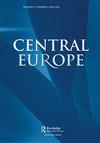一个来自东部边疆的波兰家庭的经历(1914-1921):波尔基的普罗塔塞维奇家族
IF 0.1
2区 历史学
Q2 HISTORY
引用次数: 0
摘要
本文考察了一个来自俄罗斯帝国格罗德诺省的波兰大地主家族的两代人是如何受到第一次世界大战、俄国革命、布尔什维克主义的威胁和波兰国家重生所带来的政治和社会动荡的影响的。与该地区其他有土地的贵族家庭一样,普罗塔塞维茨家族尽管具有波兰-立陶宛的身份,但在沙皇俄国享有特权的社会地位。由于婚姻和工作,这个家庭的许多成员都去了维尔纽斯和西伯利亚,而一个年轻的成员在奥地利加利西亚学习,并加入了Piłsudski的组织。这篇文章描述了1915年,老普罗塔塞维茨撤退到塔甘罗格,并于1918年返回博尔基,面对随后的波苏战争。在西伯利亚从事铁路建设的两名家庭成员遭遇了悲惨的结局。年轻一代参加了1919年至1921年波兰在东部的军事行动,并成功地适应了恢复后的波兰的生活。在帝国衰亡和新民族国家出现的背景下,波兰和立陶宛对威尔诺的主权主张引起了人们对国家身份的关注。本文章由计算机程序翻译,如有差异,请以英文原文为准。
The Experiences of a Polish Family from the Eastern Borderlands (1914–1921): The Protassewiczes of Borki
ABSTRACT This article examines how two generations of a large Polish landed family from the Grodno governorate in the Russian Empire were affected by the political and social upheavals brought about by World War One, the Russian Revolution, the threat of Bolshevism, and the rebirth of a Polish state. The Protassewiczes, like other landed noble families in the region, despite their Polish- Lithuanian identity, enjoyed a privileged social status in tsarist Russia. Marriage and work took many of the family’s members to Wilno (Vilnius) and Siberia, while a younger member studied in Austrian Galicia where he joined Piłsudski’s organisation. The article describes the evacuation to Taganrog in 1915 of the senior Protassewicz and his subsequent return to Borki in 1918 to face the ensuing Polish-Soviet War. Two members of the family who were engaged in railway building in Siberia met a tragic end. The younger generation participated in Polish military efforts in the east in 1919–21 and adapted successfully to life in restored Poland. Attention is paid to issues of national identity raised by rival Polish and Lithuanian claims to Wilno in the context of the fall of empires and the emergence of new national states.
求助全文
通过发布文献求助,成功后即可免费获取论文全文。
去求助
来源期刊

Central Europe
HISTORY-
CiteScore
0.20
自引率
0.00%
发文量
7
期刊介绍:
Central Europe publishes original research articles on the history, languages, literature, political culture, music, arts and society of those lands once part of the Habsburg Monarchy and Poland-Lithuania from the Middle Ages to the present. It also publishes discussion papers, marginalia, book, archive, exhibition, music and film reviews. Central Europe has been established as a refereed journal to foster the worldwide study of the area and to provide a forum for the academic discussion of Central European life and institutions. From time to time an issue will be devoted to a particular theme, based on a selection of papers presented at an international conference or seminar series.
 求助内容:
求助内容: 应助结果提醒方式:
应助结果提醒方式:


